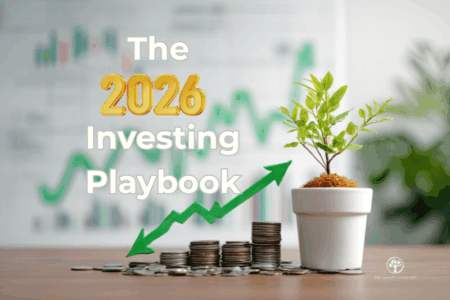There is a feeling of optimism in the air.
The Straits Times Index (SGX: ^STI) or STI has surpassed its previous all-time high set in 2007, punching above the 4,000 level.
What’s more, the bellwether index has also stayed above this level for three consecutive sessions as of this writing.
Increasingly, investors are confident that the rally is here to stay.
But, can the STI continue to break new highs?
Higher earnings and dividends
At the Smart Investor, we like to focus on the business behind the stock.
As long as the business is demonstrating improved revenue and profits, its share price should rise in tandem.
Dividends are another key factor you shouldn’t miss.
And as companies grow their profits, they can also pay out increasing dividends.
As these dividends head higher, investors will also bid up the price of the shares along the way.
Hence, a useful method to check if a rally is justified is to look at the earnings and dividends reported by companies within the STI.
The three local banks have reported steady earnings for the first quarter of 2025 and are poised to announce their first-half results in early August.
DBS Group’s (SGX: D05) profit before tax came in at a record high, and Singapore’s largest bank also upped its quarterly dividend by 39% year on year to S$0.75 for its latest quarter.
Meanwhile, Singtel (SGX: Z74) saw its underlying net profit for fiscal 2025 rise 9% year on year to S$2.5 billion.
The telco also raised its total dividend for the fiscal year to S$0.17, higher than the previous year’s S$0.15.
Elsewhere, Singapore Technologies Engineering (SGX: S63) also reported a healthy 19.7% year-on-year increase in profits for 2024.
The engineering giant also raised its annual dividend from S$0.16 in 2023 to S$0.17 for 2024.
From the examples above, it would appear that the current rally is supported by both higher earnings and larger dividend payouts – a good sign.
A broad-based rally
Meanwhile, second-liner blue-chip stocks are also enjoying a breath of fresh air.
Second-liners are defined as companies within the STI that occupy a small weightage, typically between 0.5% to 2%.
DFI Retail Group (SGX: D01), which makes up just 0.3% of the STI, surged 25% year-to-date.
Hongkong Land Holdings (SGX: H78) shot up even higher at 43% year-to-date, but only occupies 1.6% of the STI.
And under-the-radar property developer UOL Group (SGX: U14) saw its shares leap 26% year-to-date but takes up just 0.8% of the index.
These companies have yet to release their first half results, though, but several of them did report positive business news.
Hongkong Land recently raised its 2024 dividend to US$0.23 (from US$0.22) after announcing a strategic review last year that seeks to pivot the business towards investment properties.
DFI Retail Group saw its underlying net profit excluding divestments surge 28% year on year for the first quarter of this year.
A mixed cauldron of emotions
The evidence seems clear – the STI’s rally looks sustainable as many of its underlying companies are reporting healthy results.
As an investor, it’s natural to feel euphoric when you see the value of your portfolio rise.
A word of caution, though.
While the rising tide can lift all boats, it’s important to continue monitoring the business behind the stock.
Do not get carried away by rising share prices, as everyone will appear to be a genius in a bull market.
For Smart Investors, it’s also frustrating to watch valuations get more expensive, as this shrinks the pool of potential investments you can find.
The key is to be patient while waiting for more attractive opportunities to come by.
The STI’s rally can trigger a flurry of emotions, but you need to remember to stay calm and rational.
Just as a market crash should not make you panic, you should be wary of feeling too optimistic.
As long as you remain rational when searching for investment ideas, your portfolio should do fine in the long run.
When headlines feel chaotic, you need ‘Get Smart’, our weekly newsletter. Each issue helps you focus on what matters, explaining stocks and strategies in plain language, and pointing you toward dividend-payers that can hold steady when the world doesn’t. Sign up now for free and get ready for our next issue in your inbox.
Follow us on Facebook, Instagram and Telegram for the latest investing news and analyses!
Disclosure: Royston Yang owns shares of DBS Group.





